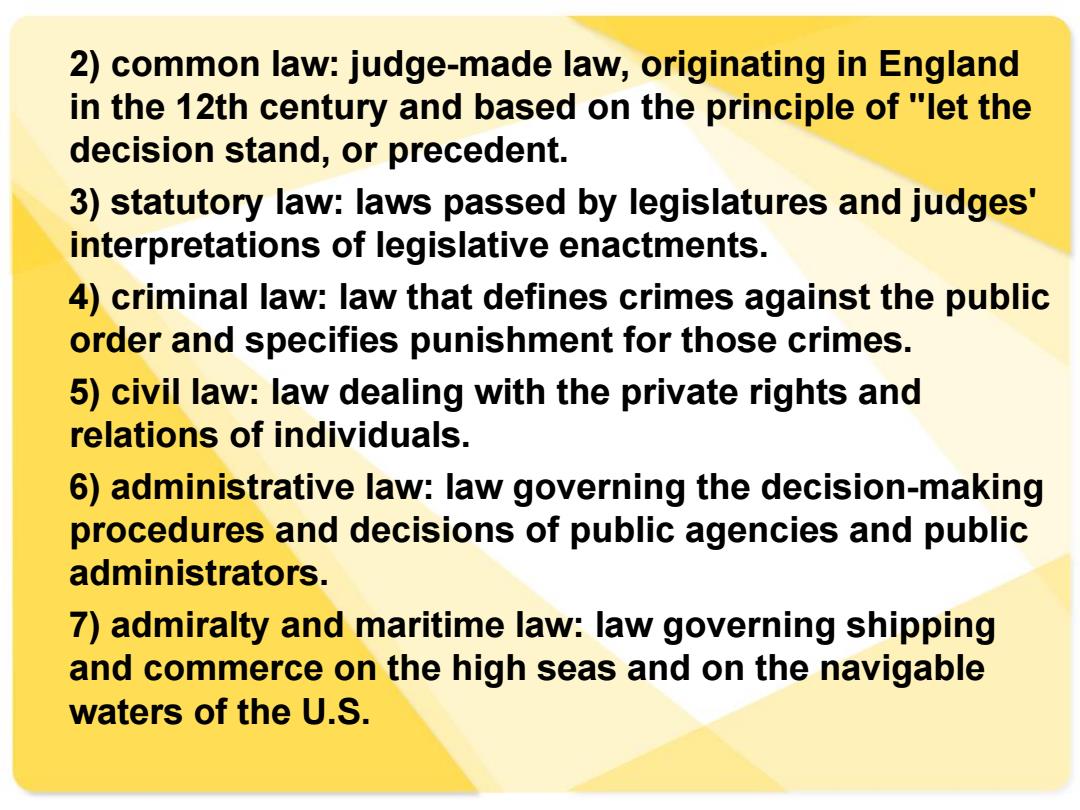正在加载图片...

2)common law:judge-made law,originating in England in the 12th century and based on the principle of "let the decision stand,or precedent. 3)statutory law:laws passed by legislatures and judges' interpretations of legislative enactments. 4)criminal law:law that defines crimes against the public order and specifies punishment for those crimes. 5)civil law:law dealing with the private rights and relations of individuals. 6)administrative law:law governing the decision-making procedures and decisions of public agencies and public administrators. 7)admiralty and maritime law:law governing shipping and commerce on the high seas and on the navigable waters of the U.S.2) common law: judge-made law, originating in England in the 12th century and based on the principle of "let the decision stand, or precedent. 3) statutory law: laws passed by legislatures and judges' interpretations of legislative enactments. 4) criminal law: law that defines crimes against the public order and specifies punishment for those crimes. 5) civil law: law dealing with the private rights and relations of individuals. 6) administrative law: law governing the decision-making procedures and decisions of public agencies and public administrators. 7) admiralty and maritime law: law governing shipping and commerce on the high seas and on the navigable waters of the U.S